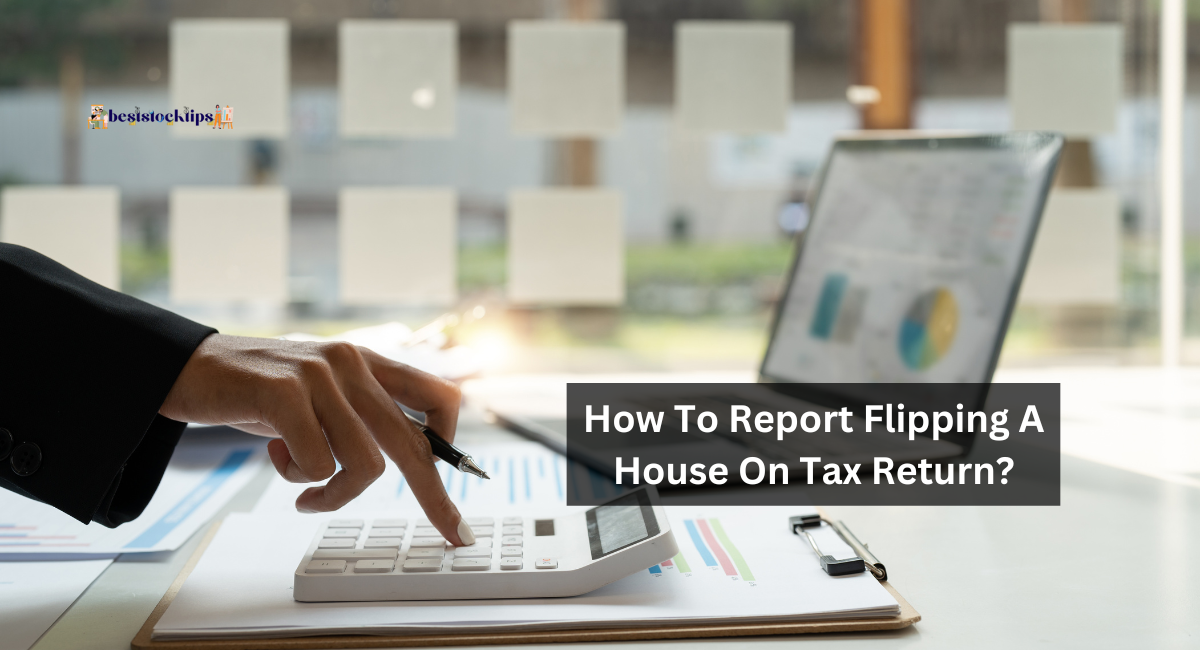Flipping houses can be a profitable business. Real estate fans can make money by buying homes, fixing them, and selling them for more money. But even though successful flips are exciting, it’s essential to understand the complicated tax consequences. Not only is it wise to know how to report house selling on your tax return, but it’s also necessary to stay compliant and make the most money possible.
This article will detail how to report house flips on your tax return, breaking down the details and giving tips to ensure the process goes smoothly and legally.
How To Report Flipping A House On Tax Return?
House flipping entails purchasing a distressed or undervalued house, renovating it, and selling it for a more fantastic price, usually within a short period. The IRS considers house flipping a type of real estate investing or business activity for tax purposes rather than a personal transaction.
1. Understand Your Tax Duties
You must know several tax duties when flipping a house. Profits from house flipping are generally classified as either regular income or capital gains.
Ordinary Earnings
If you flip residences regularly and the IRS considers your operations a business, the earnings are deemed ordinary income. They are liable to regular income tax rates as well as self-employment taxes.
Gains On Capital
If you don’t do house flipping for a living and keep the property for more than a year before selling it, the profit is taxed as long-term capital gains. These profits are often taxed at a lower rate than regular income.
2. Maintain Accurate Records
Keep detailed records of all expenses associated with the property flipping process. This covers the purchase price, renovation expenditures, property taxes, insurance, real estate agent commissions, closing costs, and other direct property expenses.
3. 1099-S And 1099-MISC forms
If you sell a property and get payment, the closing agent may issue you Form 1099-S. This form summarizes the sale proceeds. Furthermore, if you paid contractors or other professionals more than $600 during the flipping process, you may be required to file Form 1099-MISC to disclose these payments.
4. Tax Form Reporting
Schedule D (Form 1040) is a tax return.
This form reports capital gains and losses from selling a flipped property owned for more than a year.
5. Schedule C Of Form 1040
Report your profits and losses on this form if you are doing house flipping as a company. Include all income and deductible expenses incurred due to your flipping operations.
Form 4797 is used to report the sale of commercial property. If your flipping activities are considered a business, you may be required to declare the transaction on this form.
6. Think About Tax Deductions
Take advantage of the tax breaks available for house flipping. Deductible charges, including refurbishment costs, property taxes, insurance, and interest on loans used for flipping, can lower your taxable income.
7. Speak With A Tax Professional
Tax laws governing real estate transactions can be complicated and constantly changing. Seeking counsel from a skilled tax professional or accountant with real estate tax experience can help assure compliance and optimize deductions.
8. Reporting Of State And Local Taxes
Be mindful of state and municipal tax duties associated with house flipping. Tax laws vary significantly between jurisdictions and guarantee compliance with all relevant legislation.
What To Include In Your Tax Return?
A sole owner purchasing and selling houses should disclose such activity on Schedule C. Their inventory will be the residences they buy, renovate, and trade. They can deduct this activity’s usual and customary business expenses because it is a business.
If their activities in purchasing and selling real estate do not qualify as a Section 162 trade or business, they must record them on Schedule D. The costs of improving and selling a home will be added to the home’s basis. Because the houses are capital assets and the activity is not a business, the taxpayer cannot deduct the business expenses associated with the movement.
How Can I Avoid Paying Taxes When Flipping a House?
The truth is that you will not be able to avoid paying all taxes when flipping a house, but you will be able to minimize the amount you may owe after the sale considerably.
There are a few techniques for reducing the tax burden of house flipping as a business.
- To begin, establish a legal entity to manage the income and be taxed at the corporate rate rather than the individual rate.
- Another method is to keep the property for longer than a year. Capital gains are realized when assets, such as homes or equities, are sold. In other words, the capital gains tax on house flipping may differ.
- Third, under the 1031 exchange, the IRS permits the proceeds of real estate transactions to be transferred to the next property. A 1031 exchange is an exception that allows a person or company to share profits from a home sale to a more valuable property.
The amount of taxes levied on property flipping will vary depending on several factors. Tax reduction is built into the design of your real estate flipping business.
Reporting income from house flipping on your tax return demands meticulous record-keeping, a grasp of various tax requirements, and the use of the necessary IRS forms. To negotiate the complexities of real estate taxation, it’s critical to keep updated about tax regulations and seek professional advice. By adhering to these principles and meeting your tax obligations, you can reap the benefits of successful house flipping while remaining in compliance with IRS standards.
Thanks for reading the article….
